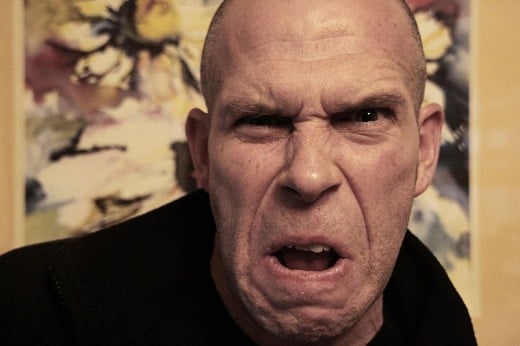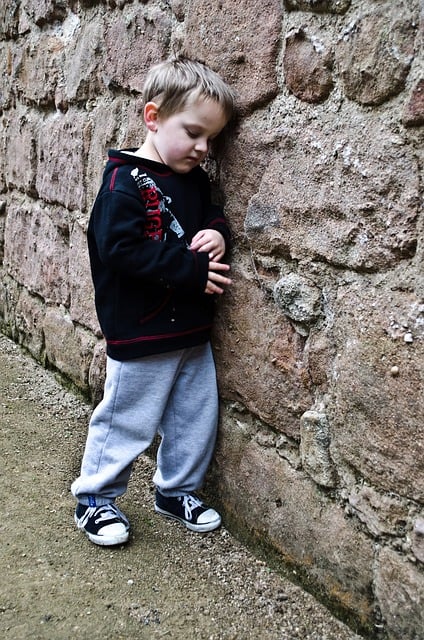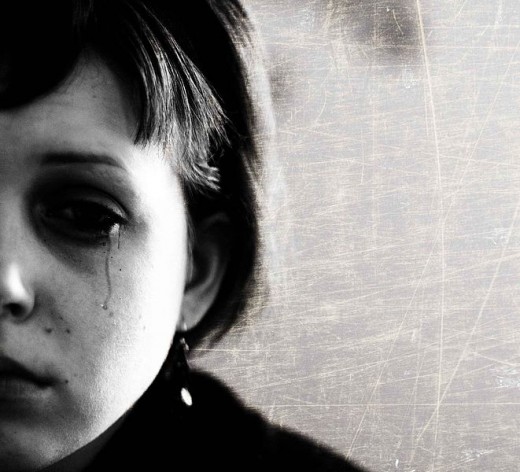The Effects of Verbal Abuse
'Sticks and Stones May Hurt my Bones But Words Will Never Hurt Me!'
How many of us grew up hearing this phrase? Our parents may have taught us this to try to divert the pain we felt when a neighbor or school chum or even a sibling hurt us with words. The truth is words can and do hurt and can cause lifelong damage.
I don't remember many things about my childhood, but I remember clearly the day my fourth grade teacher called me stupid in front of the entire class because I dared to put a 'flare' on my writing style. This shows just how powerful hurtful words can be.
The Effects of Verbal Abuse on Children
Depending on many other factors, verbal abuse can cause long term and permanent damage to a child.
A child that grew up with verbal abuse can become an abuser, even escalating to physical abuse.
A child that grew up with verbal abuse can become socially awkward, shy, and isolated.
They can become sexually promiscuous, as they are seeking approval from many different levels of relationships.
They can become a braggart, as they learned that no one else would stand up for them but themselves.
They can also grow up to become an advocate against every type of abuse, as I did.
The Effects of Verbal Abuse on the Adult
The effects of verbal abuse on the adult can be much the same of that of the child. Maybe it reduces the adult to feeling childlike so they react the same way a child does.
The bully at work may be verbally abused by the controlling wife.
The woman who mumbles her words and hides in her books may be the shy awkward verbally abused wife.
Verbal abuse can make an adult have no or low self esteem, feeling they have very little worth or value in this world.
Verbal abuse is psychological violence.
Patricia Evans, author of five books on verbal abuse, defines it best.
"Verbal abuse creates emotional pain and mental anguish. It is a lie told to you or about you. Generally, verbal abuse defines people telling them what they are, what they think, their motives, and so forth."
Break
The
Cycle
Different Types of Verbal Abuse
The blame game: They get mad at you and either blow their top, or cheat on you, or do something they shouldn't and blame you! If you hadn't done this....or if you HAD done this...or if you didn't look this way.....then it wouldn't have happened!
Belittling: This is very common. They put you down either in front of others or when you are alone.
Intimidation: Intimidation can be done in several ways. They can threaten you making you fear physical punishment. They can threaten you about leaving the relationship. They can threaten to take something of value away from you if compliance is not met, such as seeing your own child!
Name calling: Name calling is one of the most common forms of verbal abuse. Some abusers hide behind what they consider 'constructive criticism'. If you are constantly being criticized it can beat your self esteem down to a pulp.


Who Uses Verbal Abuse?
Most people think that verbal abuse comes from a typical relationship of a couple. Although this is most common that we typically hear about, verbal abuse can come from many sources.
A parent can use verbal abuse and could very well be the source of the relationship abuser. It is never acceptable to call a child stupid or lazy or any other type of put down.
A teacher can put a child down and publicly shame them without even realizing it.
A friend can use verbal abuse and is more likely to use what they call 'constructive criticism' to help another friend.
The answer is, anyone can verbally abuse another person.

Acceptable Verbal Abuse
When is it acceptable to use verbal abuse?
Poll Voting
If you voted 'NEVER' then good job!
If you voted 'When fighting' then keep reading, you still have much to learn!
The Myth About Verbal Abuse
Many believe that verbal abuse is not truly abuse. They believe that because it doesn't cause physical damage or bruises that can be seen that it must not be abuse. The truth is far from this. Verbal abuse can do so much damage to a person's self esteem.
You might say "Why don't you just walk away?" That is another myth about verbal abuse.
Leaving a verbally abusive relationship can be very hard for several reasons.
Fear is a factor, just like with physical abuse: Fear of being alone, or fear of raising children without the financial support of the abuser.
Self worth is a factor. The abused may feel after a time that they deserve the abuse and that they don't deserve better.
A child that is verbally abused by a parent has no escape, unless it is identified by another caring adult.
A child that is verbally abused by a teacher has no way out unless it is identified by other students or another teacher or adult.
What Can You Do in a Verbally Abusive Relationship?
Verbal abuse is never okay. You should never feel that you are to blame in some way, or the cause of it.
First, let the abuser know that their words are hurtful. If you feel retribution of any kind, especially physical, then get out immediately!
Seek professional counseling. This should be done with both parties. The abuser needs to understand why they do this and what it does to the other person. The other person needs to regain their own esteem. Counseling should, however, be done on an individual basis.
Note: Couples counseling is not an option as it is usually based on mutual love and respect, something that is not found in a verbally abusive relationship.
Lean on the support of your family or friends. Talk about what is happening and how it makes you feel.
Take back YOU!.. Regain the power of yourself. This can be the hardest one to do without help!
Remember that not all people can change and your option may be to leave the abusive situation.
Not all verbally abusive people use physical abuse, but most physically abuse people do use verbal abuse.
Eminem and Rihanna on Abuse
The Eminem Video
This video is so powerful, as it tells how abuse is accepted and expected after time.
Breaking the Cycle of Abuse
“They f*** you up, your mum and dad.
They may not mean to, but they do.
They fill you with the faults they had
And add some extra, just for you."
Philip Larkin
When Words Hurt
© 2013 Rebecca Shepherd Thomas









